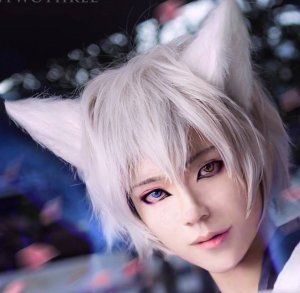Ultimate level of 勾心鬥角
Love of Nirvana captivates with its realistic portrayal of modern geopolitics. A small nation, ethnically distinct, is caught between two superpowers, both exploiting its vulnerable people for their gain. This narrative resonates deeply with today’s global conflicts, fitting seamlessly into the dynamics of many contemporary war-torn regions. The way each party's narratives echo current geopolitical rhetoric is striking. As history often teaches us, it repeats itself.
Storyline
The plot is compelling. Though viewers receive numerous hints about the villain’s identity, the uncertainty lingers—no one, including the main characters, can be sure. The villain masks his malice with an appearance of benevolence. Amid the political intrigues, a love triangle unfolds, but the female lead quickly discerns her true love. True to the nature of palace historical dramas, the story brims with scheming, deception, danger, and a love that transcends adversity.
Characters
The three main characters deliver standout performances: Wei Zhao (Ren Jia Lun), Jiang Ci (Landy Li), and Pei Yan (Jeremy Tsui). Wei Zhao, who initially tries to kill Jiang Ci multiple times, gradually falls in love with her. Despite the harm he inflicts, Jiang Ci finds herself irresistibly drawn to him. Pei Yan, hopelessly in love with Jiang Ci, is willing to sacrifice everything for her—except his family honor, which continually holds him back. Their respective sidekicks add depth, highlighting the honor and loyalty the male leads inspire among their followers.
Performances
The main cast consists of seasoned actors. Wei Zhao is a deeply conflicted character, torn between consuming hatred and a hidden sense of compassion and duty. Ren Jia Lun portrays Wei Zhao’s cold and brutal exterior with a perpetually stern, frowning expression, making the character wholly believable. As in many of Ren Jia Lun’s dramas, there are no overtly intimate scenes. Still, the subtle storytelling conveys the deep intimacy between Wei Zhao and Jiang Ci.
Landy Li excels as Jiang Ci, effortlessly transitioning from innocence and playfulness to moments of courage and vulnerability. She nails every emotional scene. Jeremy Tsui’s sly smile and sharp features make it difficult to discern Pei Yan’s true motives, yet the actions of his sidekicks provide insight into his character’s internal struggles. Wen Zheng Rong delivers a powerful performance as Rong Yu Die (Pei Yan’s mother), transforming from a ruthless, ambitious figure to a resigned, defeated one. Ryan Zhu (An Cheng) and Zhao Hua Wei (Yi Fei) also shine as the loyal sidekicks of Pei Yan and Wei Zhao, respectively, evoking deep emotional investment from the audience.
Dialogue
The script is well-crafted, with cohesive and engaging dialogue. Given the heavy tone of the drama, comedic moments are sparse. However, the narrative effectively reiterates Wei Zhao’s quest to clear his father’s name, Pei Yan’s ambition for the prime ministership, Rong Yu Die’s obsession with placing her son on the throne, and Jiang Ci’s lighthearted pursuit of tasting the world’s best food and meeting up with her "shifu".
Music
The official soundtrack is phenomenal. Each piece evokes vivid memories of the drama’s key scenes—whether battles, romantic moments, or thinking of homeland. Even without watching the series, the music alone conveys the essence of the story.
Ending and Final Thoughts
The ending is predictable, with subtle clues dropped throughout, yet it still delivers an emotional punch. It’s heart-wrenching that the lovers are kept apart by circumstances, though they remain united in spirit. Personally, I would have preferred seeing them perform the marriage ritual together rather than separately. Perhaps the ending suggests that love transcends physical presence, uniting them spiritually instead.
If you can handle a fast-paced, emotionally intense drama with a bittersweet ending, Love of Nirvana is a must-watch.
TWO THUMBS UP!
Storyline
The plot is compelling. Though viewers receive numerous hints about the villain’s identity, the uncertainty lingers—no one, including the main characters, can be sure. The villain masks his malice with an appearance of benevolence. Amid the political intrigues, a love triangle unfolds, but the female lead quickly discerns her true love. True to the nature of palace historical dramas, the story brims with scheming, deception, danger, and a love that transcends adversity.
Characters
The three main characters deliver standout performances: Wei Zhao (Ren Jia Lun), Jiang Ci (Landy Li), and Pei Yan (Jeremy Tsui). Wei Zhao, who initially tries to kill Jiang Ci multiple times, gradually falls in love with her. Despite the harm he inflicts, Jiang Ci finds herself irresistibly drawn to him. Pei Yan, hopelessly in love with Jiang Ci, is willing to sacrifice everything for her—except his family honor, which continually holds him back. Their respective sidekicks add depth, highlighting the honor and loyalty the male leads inspire among their followers.
Performances
The main cast consists of seasoned actors. Wei Zhao is a deeply conflicted character, torn between consuming hatred and a hidden sense of compassion and duty. Ren Jia Lun portrays Wei Zhao’s cold and brutal exterior with a perpetually stern, frowning expression, making the character wholly believable. As in many of Ren Jia Lun’s dramas, there are no overtly intimate scenes. Still, the subtle storytelling conveys the deep intimacy between Wei Zhao and Jiang Ci.
Landy Li excels as Jiang Ci, effortlessly transitioning from innocence and playfulness to moments of courage and vulnerability. She nails every emotional scene. Jeremy Tsui’s sly smile and sharp features make it difficult to discern Pei Yan’s true motives, yet the actions of his sidekicks provide insight into his character’s internal struggles. Wen Zheng Rong delivers a powerful performance as Rong Yu Die (Pei Yan’s mother), transforming from a ruthless, ambitious figure to a resigned, defeated one. Ryan Zhu (An Cheng) and Zhao Hua Wei (Yi Fei) also shine as the loyal sidekicks of Pei Yan and Wei Zhao, respectively, evoking deep emotional investment from the audience.
Dialogue
The script is well-crafted, with cohesive and engaging dialogue. Given the heavy tone of the drama, comedic moments are sparse. However, the narrative effectively reiterates Wei Zhao’s quest to clear his father’s name, Pei Yan’s ambition for the prime ministership, Rong Yu Die’s obsession with placing her son on the throne, and Jiang Ci’s lighthearted pursuit of tasting the world’s best food and meeting up with her "shifu".
Music
The official soundtrack is phenomenal. Each piece evokes vivid memories of the drama’s key scenes—whether battles, romantic moments, or thinking of homeland. Even without watching the series, the music alone conveys the essence of the story.
Ending and Final Thoughts
The ending is predictable, with subtle clues dropped throughout, yet it still delivers an emotional punch. It’s heart-wrenching that the lovers are kept apart by circumstances, though they remain united in spirit. Personally, I would have preferred seeing them perform the marriage ritual together rather than separately. Perhaps the ending suggests that love transcends physical presence, uniting them spiritually instead.
If you can handle a fast-paced, emotionally intense drama with a bittersweet ending, Love of Nirvana is a must-watch.
TWO THUMBS UP!
Vond je deze recentie nuttig?


 1
1 5
5 1
1




















